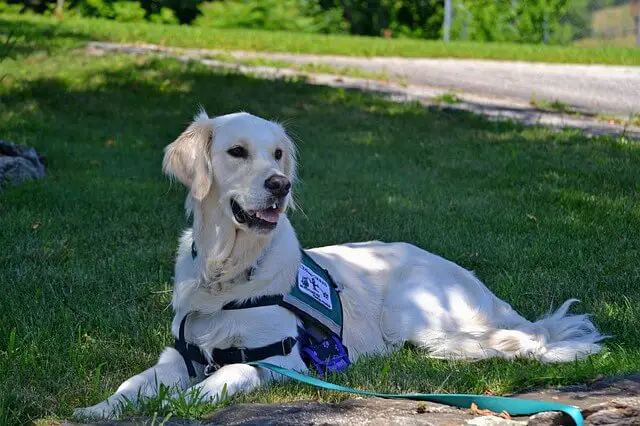California’s New Law Will Stop Emotional Support Dog Fraud
10.02.2022.
The Governor of California Newsom signed a law, AB 468, that will impose various requirements, effective January 1, 2022, designed to combat the fraud of emotional support animals.
To be clear, Emotional Support Animals (ESAs) are NOT service animals. According to the ADA, a service dog is a dog that is individually trained to perform tasks for a person with a disability. ESAs are not official animals under the ADA, although that limit can sometimes be a little blurry when a dog is trained to perform tasks related to mental or psychological disability. As the legislation Committee notes,
“An ESA is a dog (or other animal) that is not trained to perform specific acts related to a person’s disability. Instead, the owner of an ESA derives a sense of wellbeing, fulfillment, companionship, or lessened anxiety with the presence of the animal. Of note, ESAs do not enjoy the same legal privileges as trained service dogs: for example, while federal and state law requires that service dogs be allowed to accompany their human partner in public places, ESAs, on the other hand, do not have to be accommodated.”
The Committee further notes that according to the author and sponsors,
“The emergence of ESA has led to an increase in fraudulent sales and subsequent misrepresentation of emotional support dogs as service dogs, including companies now selling various deceptive certificates and goods related to the ESA, which incorrectly implies that the ESAs have the same legal rights and privileges as service dogs. Items generally include vests, badges, patches, holographic identification cards, and certificate documents that clearly contain the words "Emotional Support Animal" and, in some cases, "ESA, protected under federal law," which may imply that ESAs wearing such accessories have the same rights like service dogs. ”
What does the law imply?
California law currently contains a provision that provides that a person who knowingly and fraudulently represents a guide dog, signal dog, or service dog may be found guilty of an offense punishable by up to 6 months in prison, a fine of not more than $1,000, or fine and imprisonment. But there has been no similar provision for ESAs - so far.

The new law, sponsored by the Guide Dogs for the Blind and Canine Companions for Independence, will have three main components to try to combat ESA fraud:
First component
First, the person or company that sells or gives the dog for use as an emotional support dog will need to provide written notice - at least 12-point type written in bold, on the invoice or separate paper - to the buyer or recipient of the dog stating that;
- The dog has no special training required to qualify as a guide dog, signal dog, or service dog
- The dog does not have the rights and privileges granted by law to the guide dog, signal dog, or service dog
- Knowingly and fraudulently representing that the owner or trainer of any licensed dog, to be qualified or identified as a guide dog, signal, or service dog is an offense.
Second component
Second, the person or company that sells or gives a certificate, identification, tag, vest, leash, or emotional support animal leash will also need to provide the same written notice to the buyer or recipient.
Violation of these written notice requirements or knowingly and fraudulently presenting, selling or offering to sell, or attempting to present, sell or offer to sell an emotional support dog as if entitled to rights and privileges granted by law to a guide, signal, or service dog, is subject to;
- $500 civil fine for the first offense
- $1,000 for the second
- $2,500 for the third and subsequent offenses.

Third component
Third, the new law will also prohibit healthcare professionals from providing documentation related to an individual's need for an emotional support dog unless the healthcare professional;
- Holds a valid, active license to provide professional services under a license in the jurisdiction in which the documentation is provided
- Establish a client-provider relationship with the person at least 30 days before submitting the documentation
- Complete the individual's clinical assessment of the dog's need for emotional support
- Inform the individual that they are knowingly and fraudulently representing their dog as a licensed, qualified, or identified as a guide dog, signal dog, or service dog constitutes an offense.
Violation of these requirements is subject to disciplinary action by the healthcare professional by the licensing committee.
Housing service providers who need to make reasonable adjustments for residents who need ESAs under the Federal Fair Housing Act will appreciate the new requests from health professionals. They will help ensure that letters from such service providers in support of ESA requirements are legitimate.
World Dog Finder team







Share